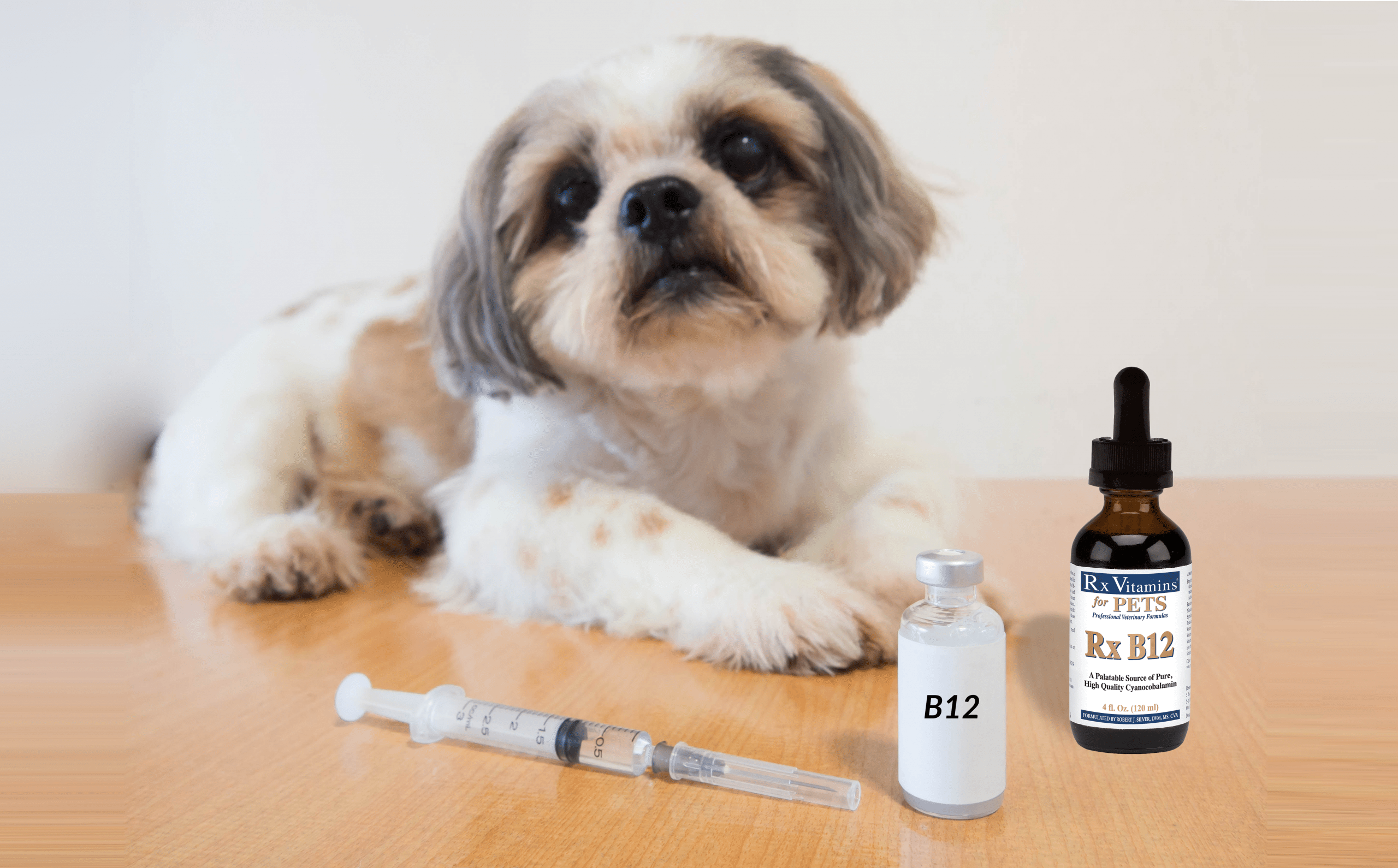
It is well documented that cats and dogs with chronic enteropathies (CE), intestinal lymphoma, or exocrine pancreatic insufficiency are often cobalamin (B12) deficient (1,2). Problems with intrinsic factor binding to ileal receptors in the diseased tissue leads to B12 deficiency. Current supplementation protocol calls for repeated parenteral injections of hydroxycobalamin over 6 weeks bypassing the diseased tissue.
However studies in both humans and dogs have demonstrated oral supplementation of cyanocobalmin will correct B12 deficiencies (3). In a recent study (4), a randomized direct comparison was made between parenteral and oral supplementation in CE dogs.

Fifty-one CE dogs with deficient or low normal B12 (<285ng/L) levels were randomized and supplemented with either oral or parenteral B12. In both groups, significant increases in cobalamin occurred at 28 and 90 day intervals. However, oral continued to increase whereas parenterally supplemented began to decrease at the 90 day interval. This decrease is associated with the cessation of B12 injections at 6 weeks indicating injections may be effective only short-term.

In both groups dogs were medically treated with corticosteroids. Both groups were evaluated for disease at each testing interval using the canine inflammatory bowel disease activity index (CIBDAI). There were significant improvements in both groups however at 3 months, the orally supplemented group had significantly lower CIBDAI .
While there was an improvement in cobalamin levels in both groups not all dogs achieved B12 sufficiency. The study concluded that serum cobalamin levels should be monitored as some dogs may need long-term supplementation. This conclusion was also reached in another study (5).
Key Findings:
- Oral cobalamin supplementation can be an effective alternative to parenteral injections.
- Post-supplementation B12 Testing should be done to ensure sufficiency.
References:
- Xenoulis G (2016) Feline exocrine pancreatic insufficiency: a retrospective study of 150 cases. JVIM
- Volkmann M (2017) Chronic diarrhea in dogs – retrospective study in 136 cases. JVIM
- Toresson L (2016) Oral cobalamin supplementation in dogs with chronic enteropathies and hypocobalaminemia. JVIM
- Torresson L (2018) Comparison of efficacy of oral and parenteral cobalamin supplementation in normalising low cobalamin concentrations in dogs: a randomised controlled study. Vet J
- Ruaux, C (2013) Cobalamin in companion animals: Diagnostic marker, deficiency states and therapeutic implications. Vet J
